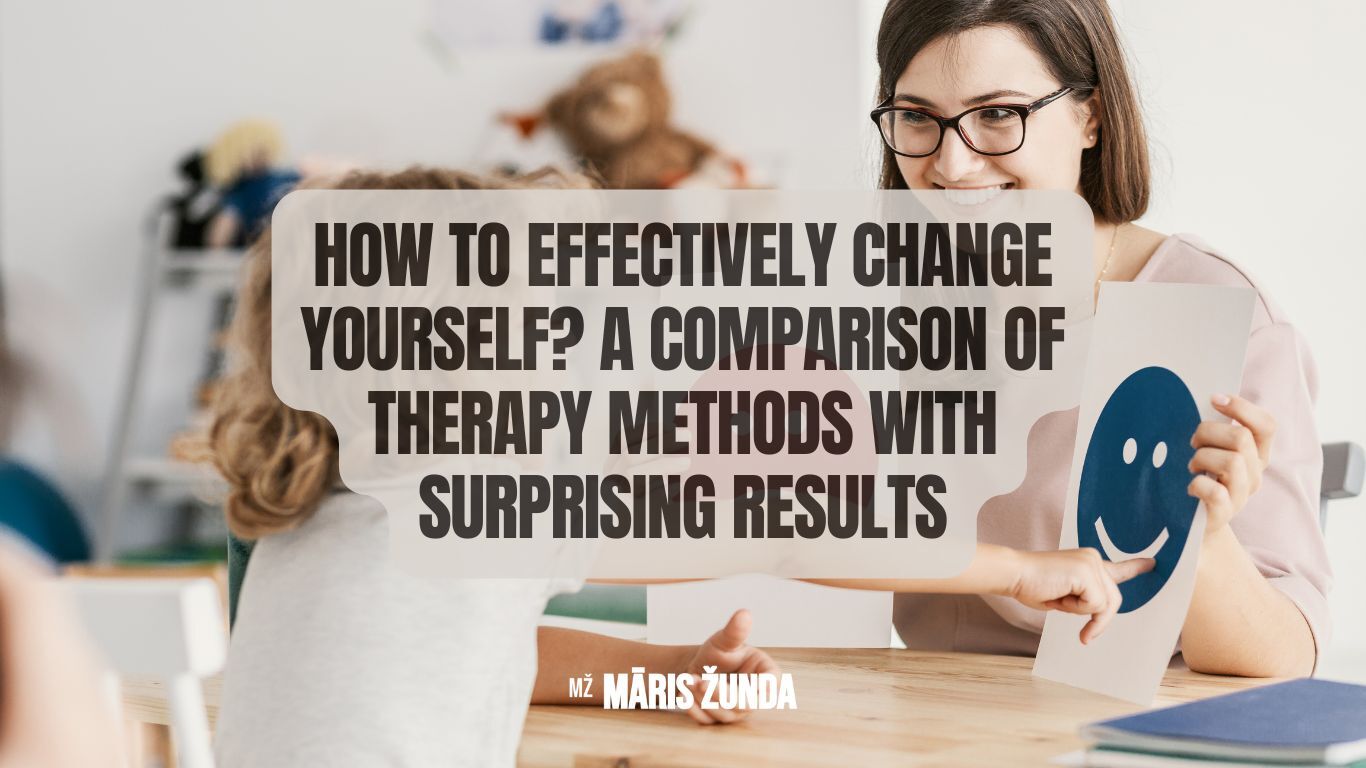How to Effectively Change Yourself? A Comparison of Therapy Methods with Surprising Results
When it comes to psychological or emotional self-work, the key question isn’t just “Does it work?” but also “How fast does it work, and which method suits me best?”
Today’s therapy options are vast — from classical psychoanalysis to modern methods focused on the subconscious mind. But what really works, and how can we measure it?
Based on research published by psychotherapist Alfred A. Barrios in American Health Magazine (Volume 7), we get a clear picture of how different therapies compare. Here’s what the numbers show:
- Psychoanalysis – 38% improvement after an average of 600 sessions
- Cognitive Behavioral Therapy (CBT) – 72% improvement after 22 sessions
- Hypnotherapy – 93% improvement after just 6 sessions
Yes, you read that right — just 6 sessions to achieve results that other methods often don’t reach even after years. These numbers challenge our assumptions about what counts as “serious” or “deep” therapy.

Psychoanalysis — Theoretical Depth Without Time Efficiency
Psychoanalysis, the tradition founded by Freud and Jung, is based on the idea that unconscious conflicts, childhood experiences, and repressed desires are the root of our problems. It typically involves long-term talk therapy — often several times a week for many years.
The problem? Gaining insight doesn’t automatically lead to transformation. Many clients get stuck in endless analysis, while their daily behavior or emotional responses remain unchanged.
600 sessions means roughly 10–12 years of consistent therapy. How realistic is that for most people?

CBT — Faster, but Superficial?
Cognitive Behavioral Therapy has gained popularity in recent decades for its structured approach and practical tools to change thinking patterns and behavior.
Results — 72% effectiveness after 22 sessions — are much better than psychoanalysis. But CBT still primarily targets the conscious mind: logic, awareness, and behavior adjustment.
What’s missing? Subconscious reactions. Even if someone rationally understands their fear of public speaking is irrational, their body may still react with anxiety. CBT can “train” thinking, but often it’s fighting against natural responses instead of working with them.
Hypnotherapy — Direct Access to the Subconscious
Hypnotherapy is often misunderstood and associated with stage shows, but therapeutic hypnosis is a completely different approach. It works with the language of the subconscious — visualizations, symbols, emotional associations, and automatic reactions.
Hypnotherapy is not mind control. It’s a collaboration where the therapist helps the client enter a deeply relaxed, focused state, bypassing mental defenses and allowing real internal reprogramming.
That’s why it’s so effective — 93% success rate after 6 sessions.
Why Is Subconscious Work Faster?
The subconscious is like an operating system — it controls our automatic responses, beliefs, habits, and emotions. You can try changing the “apps” (thoughts or behaviors), but if the system isn’t updated, it all still runs on the old script.
Conscious-level methods (like CBT or talk therapy) can be helpful, but they often work against the current, forcing change that lacks emotional depth.
In contrast, hypnotherapy and other subconscious-based methods work at the root — not the symptoms. They help transform beliefs, fears, tension, or reactions exactly where they were formed — in the subconscious.
Okay, but Does It Work for Everyone?
There’s no one-size-fits-all “magic solution.” But experience shows that people who are open to inner work and willing to take responsibility for their process respond well to subconscious methods — including hypnotherapy.
Even more important — they often get results faster and with less internal resistance, because there’s no mental “pushback,” which is common in traditional therapies.
If You’re Looking for More Than Just Talking
If you’re tired of “conscious understanding” without real change, maybe it’s time to try something different. Therapy that not only analyzes but actually transforms.
💡 I offer a free strategic emotional diagnosis, where we’ll explore your personal situation and assess whether subconscious work is right for you.
👉 Sign up here – it’s free
In Conclusion
Therapy isn’t about how much we talk. It’s about whether our internal system actually changes. And if you want to change automatic reactions, habits, or beliefs — working with the subconscious is the most effective path.
The subconscious isn’t some mysterious force — it’s your daily navigator.
The only question is: are you in charge, or is it running the show?

